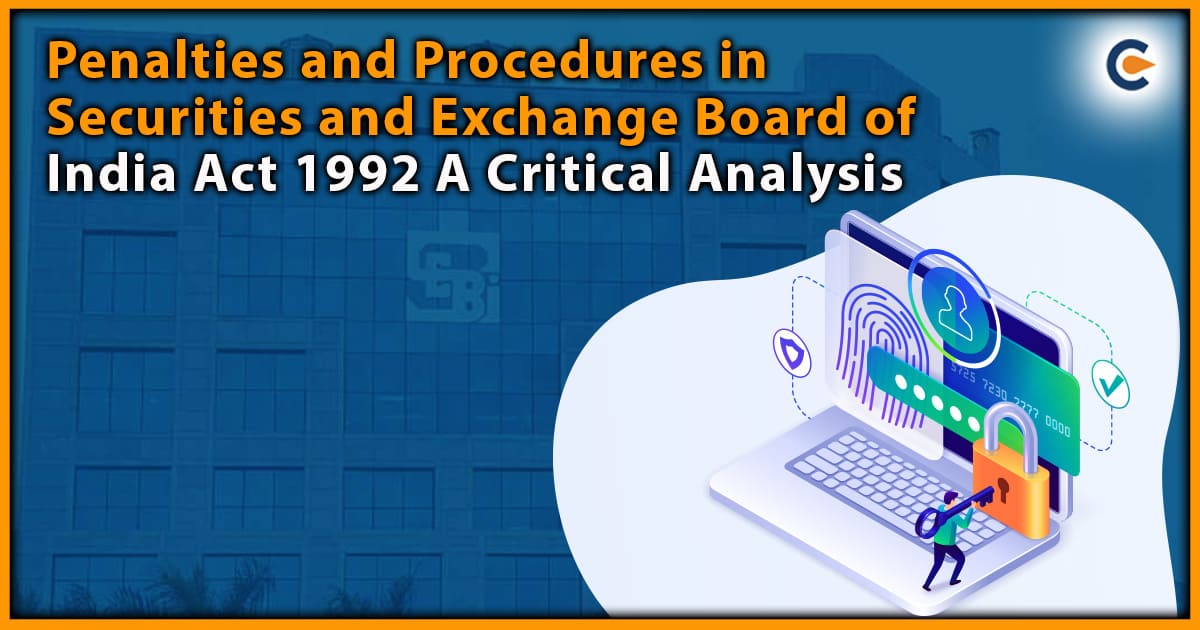Husband Entitled to TDS Credit on Interest Earned from Amount Gifted to His Wife: The Income Tax Appellate Tribunal ITAT
The case originated from a dispute regarding the interpretation of the regulations governing the registration of stock brokers in India. Initially, the Division Bench of the Delhi High Court issued a judgment stating that a stock broker only needed a single registration with SEBI, regardless of the number of stock exchanges they operated on. This meant that stock brokers would not have to obtain separate registrations or pay additional fees for each stock exchange they were active on.
However, SEBI was dissatisfied with this decision and chose to appeal against it. This appeal prompted the involvement of the Supreme Court, which took up the case and reviewed the arguments put forth by both parties.
After carefully considering the provisions of the regulations and the arguments presented, the Supreme Court delivered its verdict. It overturned the judgment of the Division Bench of the Delhi High Court and provided clarification on the matter.
According to the Supreme Court’s ruling, a stockbroker is indeed required to obtain a separate certificate of registration from SEBI for each stock exchange they operate on. In addition to obtaining these individual registrations, stock brokers must also fulfil the associated financial obligations by paying the prescribed fees for each registration.
This clarification by the Supreme Court reinforces the regulatory framework established by SEBI and emphasizes the importance of compliance in the registration process for stock brokers. The ruling clarifies that stock brokers cannot operate on multiple stock exchanges with just a single registration but must obtain separate registrations for each exchange they wish to operate on.
The Supreme Court’s decision ensures proper oversight and regulation of stock broker activities across different markets by mandating separate registrations and associated fees for each stock exchange. This contributes to maintaining the integrity, transparency, and stability of the Indian stock market as overseen by SEBI.
Case Background
Following the establishment of SEBI (Securities and Exchange Board of India), the Central Government introduced the Securities and Exchange Board of India (Stock Brokers and Sub-Brokers) Rules, 1992. In accordance with Section 30, SEBI exercised its authority to formulate the Securities and Exchange Board of India (Stock Brokers and Sub-Brokers) Regulations, 1992 (Regulations 1992) to oversee the registration and operations of stock brokers.
SEBI levied fees on stock brokers in accordance with Regulation 10 read with Schedule III of the Regulations 1992. This fee imposition was challenged in the BSE Brokers’ Forum, Bombay and Others v. Securities and Exchange Board of India and Others case, where the Supreme Court upheld the validity of the fee regulation.
Later, SEBI issued a circular on March 28, 2002, stating that every stock broker holding a certificate of registration must pay the prescribed fees in Schedule III for each certificate of registration they hold.
In the present case, the dispute arose when the Association of trading members challenged the circular, particularly paragraph (vi) of Part A, which required a composite corporate member with multiple registrations to pay structured fees for each registration. The Single-Judge Bench of the High Court upheld the circular, while the Division Bench held that a single registration with SEBI is sufficient.
Subsequently, SEBI filed an appeal before the Supreme Court to clarify the requirement of obtaining a certificate of registration from SEBI for each stock exchange where a stock broker operates and the associated fees.
Brief Facts
The case involves the registration of stock brokers with the Securities and Exchange Board of India (SEBI).
- The Division Bench of the Delhi High Court held that a single registration with SEBI is sufficient for stock brokers operating on multiple stock exchanges, eliminating the need to pay fees for each registration.
- SEBI appealed against this judgment to the Supreme Court.
- The formation of SEBI and the Securities and Exchange Board of India (Stock Brokers and Sub-Brokers) Rules, 1992, is relevant to the case.
- SEBI levied fees on stock brokers according to Regulation 10 read with Schedule III of the Regulations.
- The fee structure was challenged in a previous case, but the Supreme Court upheld the validity of the regulations.
- SEBI issued a circular clarifying that stock brokers must pay fees for each registration held.
- The respondent association of trading members challenged the circular, specifically paragraph (vi) of Part A, which required payment of fees for each registration.
- The Single-Judge Bench of the High Court upheld the circular, while the Division Bench held that a single registration suffices.
- SEBI appealed against the Division Bench’s decision.
- The Supreme Court has held that stock brokers are required to obtain a certificate of registration from SEBI for each stock exchange they operate on. Additionally, they must fulfill the obligation of paying the prescribed fees for each registration.
- The Supreme Court allowed SEBI’s appeal and quashed the Division Bench’s judgment.
Supreme Court Held
According to the ruling of the Supreme Court, it is mandatory for a stock broker to obtain a certificate of registration from SEBI for every stock exchange on which they conduct their operations. The court clarified that the registration requirement is not limited to a single SEBI registration, as the respondents argued.
Furthermore, the court emphasized that along with obtaining multiple certificates of registration, the stockbroker is also obligated to pay ad valorem fees as prescribed in Part III of Regulation 10 of the SEBI (Stock Brokers and Sub-Brokers) Regulations, 1992[1]. The fees are to be paid in reference to each certificate of registration issued by SEBI.
The court rejected the contention that a single registration with SEBI is sufficient for a stockbroker with various memberships and functions across multiple stock exchanges. It clarified that the expression “a certificate of registration” in Section 12(1) of the Securities and Exchange Board of India Act, 1992, should be interpreted to include multiple certificates, as required by the regulations.
As a result, the Supreme Court upheld SEBI’s appeal, overturning the judgment of the Division Bench of the Delhi High Court. The court confirmed that a stock broker is obligated to obtain a certificate of registration from SEBI for every exchange they operate on and must comply with the prescribed fees accordingly.
Conclusion
The Supreme Court held that stock brokers in India must obtain separate registration certificates from SEBI for each stock exchange where they operate. They are also required to pay ad valorem fees for each certificate of registration. The court rejected the argument that a single registration is sufficient and emphasized the need for compliance with SEBI regulations. This decision ensures regulatory adherence, transparency, and investor protection in the stock market. It clarifies the obligations and procedures for stock brokers, reinforcing the market’s integrity and maintaining fair practices.
Read our Article: How To Avail SEBI Approval To Start Financial Securities Business In India?











